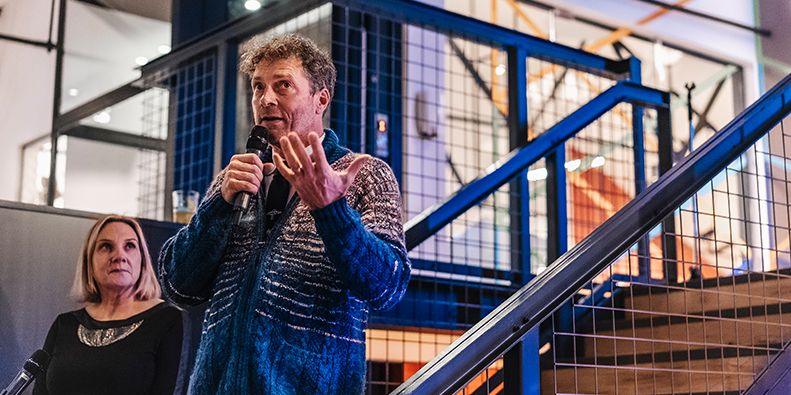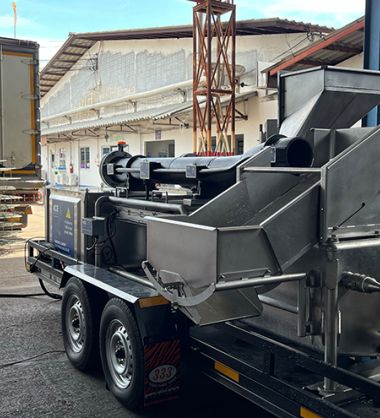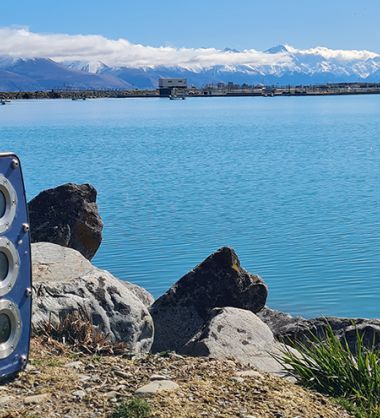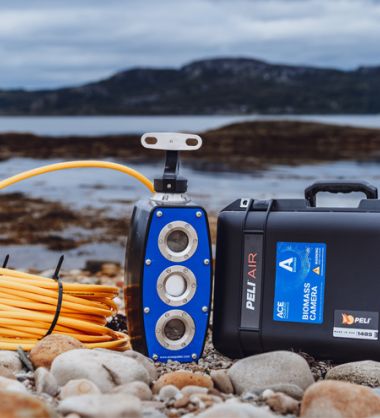Ace Aquatec chairman and IT pioneer Chris van der Kuyl hails the power of artificial intelligence to transform the sector
18 December 2024

‘Any sufficiently advanced technology is indistinguishable from magic,’ said Arthur C Clarke in 1973. We live in the time of the fastest pace of change in human history, yet it will never be this slow again. The future promises even faster innovation, reshaping industries and society at a speed we’ve never before experienced.
This can be both exciting and terrifying in equal measure. Generally, until the last few centuries, human society had eras where nothing materially changed. There were around 5,000 years between the invention of the wheel and the first trains appearing during the industrial revolution of the 19th century.
But during the 20th century, the pace increased dramatically. From the Wright Brothers’ first flight in 1903 to landing a man on the moon and the launch into service of the Boeing 747 was a ridiculously short 66 years. Since then, we have gone from the launch of the world wide web in the mid 90s to ecommerce becoming all pervasive in less than 20 years. Today, the pace of change in industries, or the ushering in of disruptive business models, is happening in the space of a year or two or, in some cases, a matter of months.
The world’s largest and most successful companies are based on innovation and knowledge and we are at a point where no business will thrive, or possibly even survive, if it does not embrace all the opportunities that technology enablement has to offer.
Along with my business partner, Paddy Burns, and emboldened by our Minecraft royalties, we decided to look for innovative companies in industries where the true effects of the technology revolution had not yet been felt and the opportunities to disrupt through the introduction of transformational, data-driven products were numerous.
Aquaculture stood out. As one of the fastest-growing food production sectors, aquaculture is key to feeding a global population expected to reach nearly 10 billion by 2050. However, like any rapidly expanding industry, aquaculture faces significant challenges: sustainability; fish welfare; operational efficiency; and data management.
This is where AI comes into play. AI, combined with advanced sensors, cameras, and machine learning algorithms, offers real-time insights that optimise operations, enhance sustainability, and improve profitability. Here’s how:
· Fish health monitoring: AI systems use cameras and sensors to track fish behaviour, size, and movement, detecting illness or parasitic infestations, like sea lice, at early stages so farmers can act quickly.
· Feeding optimisation: AI analyses fish behaviour in real time, determining optimal feeding, cutting waste, and boosting fish growth rates.
· Biomass measurement: Instead of manual sampling, AI-powered vision systems estimate biomass in real time, providing accurate data for managing growth rates, optimising feeding schedules, and planning harvests.
· Environmental monitoring: AI helps monitor water quality, alerting farms to unfavourable conditions and allowing for immediate action. AI can even predict future environmental changes, enabling proactive measures to protect fish stocks.
Ace Aquatec is one of several leading companies already paving the way in this space, championing breakthrough welfare technologies, such as the in-water electric stunner and environmentally responsible acoustic startle systems, to tackle often controversial issues such as humane slaughter and predation with innovative solutions.
Ace is not just focused on the present; they are shaping an exciting digital future. Their hardware systems began generating real-time data, offering farmers insights to monitor fish health and growth. Even more impressive, AI-powered systems started aiding decision-making by detecting early signs of disease or stress, allowing for proactive interventions and reducing mortality rates. This advanced technology not only protects fish welfare but also enhances the sustainability and profitability of farms.
With underwater cameras and machine learning algorithms, Ace Aquatec helps farms cut costs, boost yields, and improve overall fish health. Embracing this future isn’t just a welfare imperative—it’s an economic one too.
I'm convinced we're just at the start of an incredible journey. The future of aquaculture holds immense potential, with AI-driven insights set to revolutionise the entire value chain. Fish breeders could soon experiment with breeding techniques informed by vast AI datasets, while farmers implement feeding programmes optimised by predictive algorithms.
Feed companies might develop perfect ingredient blends based on AI's synthesis of cutting-edge research, and farm enclosures could be designed by computers that account for natural fish behaviours and novel material properties. This is not simply about increasing efficiency in fish farming, it's about harnessing the power of AI to address some of the most pressing challenges facing our planet: meeting the food security needs of a burgeoning global population while preserving the health and vitality of our oceans for generations to come.
The possibilities are boundless, limited only by our imagination. We are merely scratching the surface of what’s possible.
Chris van der Kuyl is co-founder and chairman of 4J Studios. He delivered a longer version of this article in his keynote speech to the Responsible Seafood Summit in St Andrews in October.


